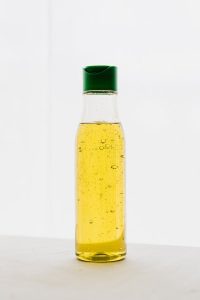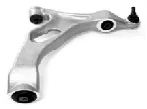Compressor oil refers to a class of petroleum products. Used to lubricate the cylinder, valve and piston rod seals of the compressor. It requires high anti-oxidation stability and high flash point. Usually the flash point should be 40℃ higher than the maximum temperature of the compressor during compression. Its viscosity should be suitable for the type of compressor and operating conditions.

Classification #
Under normal circumstances, compressor oil can be divided into two categories: mineral oil compressor oil and synthetic compressor oil according to the type of base oil; according to the structural type of the compressor, it can be divided into reciprocating air compressor oil and rotary air compressor oil. There are two types of air compressor oil; according to the properties of the compressed gas, they are divided into air compressor oil and gas compressor oil; according to the air compressor light, medium and heavy load compressor oil.
China has adopted the international standard ISO 6743/3A-1987 equivalently and formulated the compressor oil classification standard GB/T 7631.9-1997. Reciprocating air compressor oil is divided into three types: light load L-DAA, medium load L-DAB, and heavy load L-DAC. DAA and DAB are mineral oil types, and DAC is a synthetic oil type. Rotary air compressor oil is also divided into three types according to light, medium and heavy loads, namely light load L-DAG, medium load L-DAH, and heavy load L-DAJ. Among them, DAG and DAH are mineral oil types. DAJ is a synthetic type. Gas compressor oil is divided into five types according to its composition and characteristics, namely DGA (mineral oil type), DGB (specific mineral oil), KGC (commonly used synthetic fluid), DGB (non-hydrocarbon synthetic fluid), and DGE (commonly used synthetic fluid).
performance #
Compressor oil is used to lubricate compressor parts (cars, valves) and as a sealing medium for the compression chamber. For most compressors, the temperature of air or gas after compression in each stage usually exceeds 170 to 180°C, but there are also piston compressors with higher thermal intensity whose outlet temperature exceeds 220°C. In order to ensure the safe operation of the compressor, extend the oil change period, keep the air pressure system clean, and reduce friction and transmission energy consumption, the compressor oil should have good thermal stability, prevent the formation of carbon deposits, and have good corrosion resistance and anti-emulsification. and anti-foaming properties.
1. Viscosity
#
Appropriate viscosity can enable the compressor to perform good lubrication, cooling and sealing functions under operating temperature and pressure, ensuring the normal operation of the compressor. Under the conditions of dynamic lubrication, the oil film thickness increases with the increase of oil viscosity, but the friction force also increases with the increase of oil viscosity. Lubricating oil with too low viscosity will not easily form a strong enough oil film, which will accelerate wear and shorten the service life of the machine parts. On the contrary, if the viscosity of the lubricating oil is too high, it will increase the internal friction , increase the specific power of the compressor, and increase the power consumption and fuel consumption. It will also cause damage in the piston ring groove, on the air valve , in the exhaust channel, etc. Form sediments . Under the premise of ensuring lubrication, appropriate viscosity has a very important impact on energy saving and reliable operation of the compressor.
2. Viscosity-temperature
#
The oil-injected internally cooled rotary air compressor is repeatedly heated and cooled during operation. Therefore, it is required that the viscosity of the oil should not change too much due to temperature changes and should have good viscosity-temperature properties.
3. Flash point
#
The flash point indicates the temperature at which the vapor pressure formed by heating the oil under atmospheric pressure reaches the lower limit concentration that can be ignited by an open flame. If the flash point is too high, the oil fraction will be heavy, the viscosity will be high, and the asphaltene content will be high, making it easy to deposit carbon during use. If you pursue high flash point compressor oil one-sidedly, it will become an unsafe factor. Therefore, the flash point requirement of the compressor oil is appropriate.
4. Carbon deposit tendency
#
How the compressor oil resists carbon deposits is critical to the reliable operation of the compressor oil. In actual industrial use, it is not uncommon for large and medium-sized compressors to catch fire and explode due to carbon deposits. The accumulation of carbon deposits in the exhaust system will cause the exhaust valve to not close tightly, and the cooling effect will be poor, causing the exhaust temperature to rise, causing the compressor to malfunction, or even catch fire or explode. Therefore, the compressor must have a good tendency to deposit carbon. .
5. Oxidation stability
#
Since the exhaust temperature of the compressor is usually between 120 and 200°C, and may reach 300°C, the compressor oil is easily oxidized at high temperatures and deteriorates to form sludge.
6. Anti-corrosion and anti-rust properties
#
The oil cooling and other components of the compressor are made of copper or copper metal, which is easily corroded, causing early oxidation and deterioration of the oil, resulting in sludge. This requires that the oil should have good corrosion resistance. Moisture in the air is easy to cool in the cylinder of an intermittent operating compressor, which is detrimental to lubrication and can cause wear and rust. The compressor oil is required to have good anti-rust effects.
7. Oil-water separability
#
During operation, the compressor constantly encounters condensed water in the air and is violently stirred, which easily produces emulsification, resulting in unclear separation of oil and gas and increased fuel consumption. Because the oil is emulsified, the oil film is destroyed, causing wear. Emulsified oil can disperse dust, grit and sludge, affecting valve function and increasing friction, wear and oxidation. Therefore, high-quality compressor oils have good anti-emulsification properties and oil-water separation properties.
8. Defoaming property
#
During the circulation process of rotary compressor oil, the circulation speed is very fast, which puts the oil in a state of violent agitation and easily produces foam. When the compressor oil is started or decompressed, the oil in the oil pool is also prone to foaming. A large amount of oil foam is poured into the oil and gas separator , which increases the resistance and fuel consumption , causing serious overloading, overtemperature and other abnormal phenomena. Therefore, excellent rotary compressor oils are added with anti-foam additives to ensure that the oil has low foaming tendency (i.e. foaming) and good foam stability.
9. Others
#
The oil is also required to have low volatility, a suitable pour point, and no mechanical impurities and moisture to ensure the long-term safe operation of the compressor.

 April 1, 2024
April 1, 2024 










